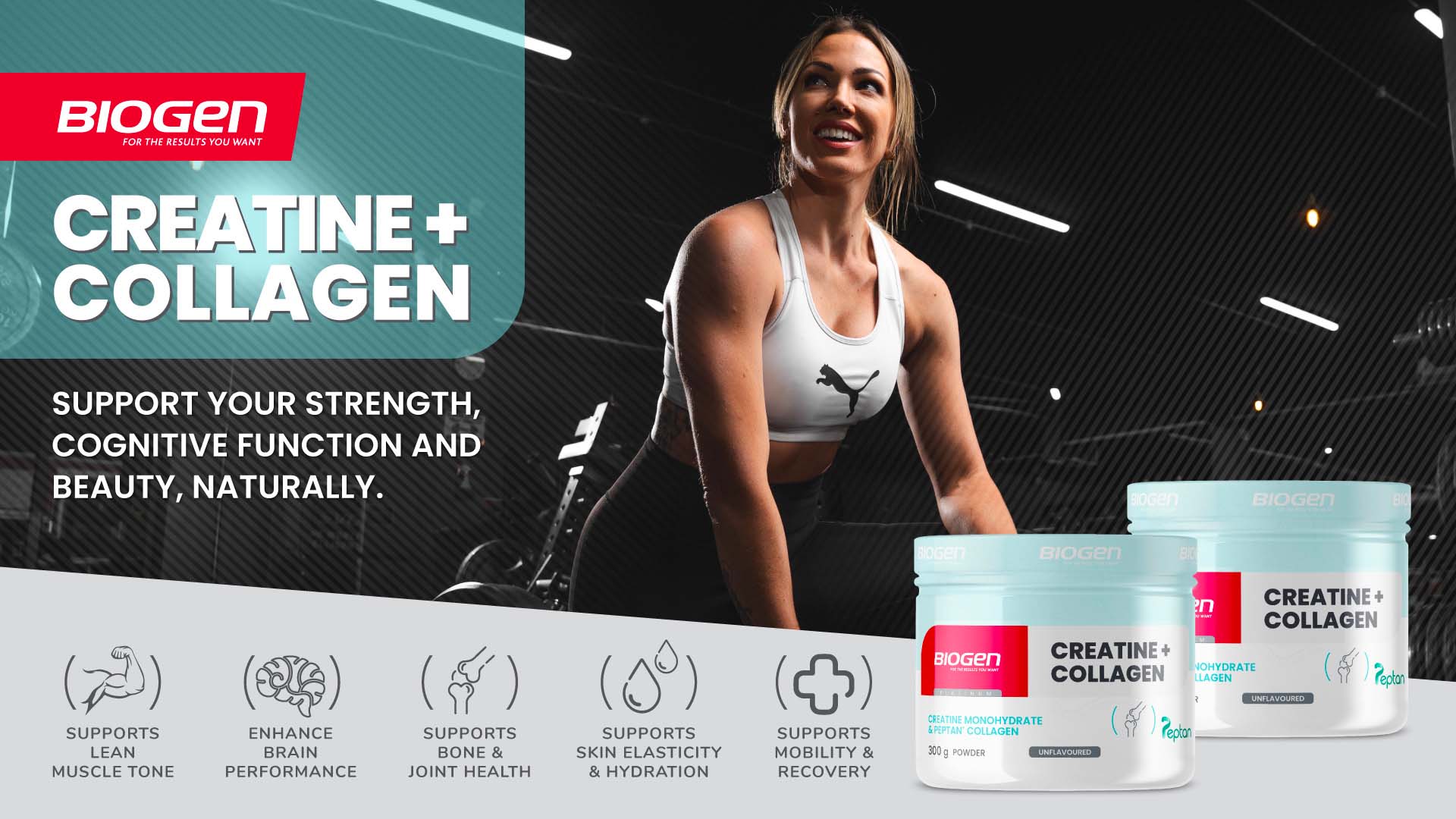For many Nigerians and West Africans who live active lifestyles—whether you’re in the gym, jogging at dawn, or hitting the outdoor football pitch—getting the most out of your body isn’t just about packing on visible muscle. True athletic performance and long-term resilience come from supporting the structures that keep you moving day after day. This is where the conversation about creatine and collagen goes beyond international headlines and enters local gyms, sports communities, and everyday routines.
The Unique Value of Collagen for West African Athletes
Collagen is a natural protein found throughout the body, providing elastic strength to connective tissues like tendons, ligaments, and cartilage. In Nigeria, with a growing interest in fitness and competitive sports—ranging from grassroots football to elite track and field—athletes are experiencing the demands of training on their bodies more than ever before. But the wear and tear that comes with pounding Lagos roads or sprinting on Accra’s athletic tracks often takes its toll over time.
Scientists note that as we age or train with high impact—such as weightlifting, calisthenics, or even dancing—the collagen in our bodies begins to break down. This process can result in stiff joints, nagging injuries, or even longer recovery periods, discouraging many from staying active. Type I hydrolysed collagen, a form processed for easier digestion and absorption, has gained global popularity as a supplement to aid in the ongoing repair of joint and tendon tissues.
In West Africa’s hot climate, maintaining this structural support for mobility and quick healing can be crucial for everyone from professional athletes to weekend joggers. Supplementing with collagen may help mitigate the gradual loss experienced during intense physical activities, offering the needed foundation for better tissue repair, reduced injury rates, and more consistent performance.
Why Creatine Has Become a Go-To for Power & Performance
Creatine monohydrate is one of the world’s most studied sports supplements. Research from universities across continents—including Africa—confirms that a standard dose of 5g per day can increase the body’s natural energy supply (ATP), allowing for more powerful explosive movements like sprints, jumps, or deadlifts. That quick burst of strength can often mean the difference between winning and losing in high-stakes competitions or casual football matches across Nigeria and Ghana.
Beyond boosting on-the-spot power output, regular use of creatine supports lean muscle growth and improves muscle cell hydration, which can be a vital advantage during our often hot, humid wo climate where staying hydrated is a challenge. Studies suggest that creatine also plays a role in post-workout recovery, helping reduce muscle breakdown and speeding up the body’s natural rebuilding process after an intense training session.
Combining Strength and Recovery: The New Frontier
Many supplements focus on either muscle building or recovery, but rarely address both at the same time. Products like Biogen Creatine + Collagen tap into a growing demand among West African athletes (and regular gym-goers) for multifunctional formulations. By pairing the explosive performance enhancements of creatine with the connective tissue repair benefits of type I hydrolysed collagen, this dual-approach supports not just strength, but also holistic bodily resilience.
The local impact is real: athletes who can avoid injury, maintain supple joints, and bounce back quicker from tough matches or workouts have the consistency to stick to their training and see continuous improvements. In a region where resources for sports medicine and long-term rehabilitation may be limited, investing in preventive nutrition rooted in science can help keep more people moving at their best, for longer.
How Biogen Creatine + Collagen Supports Nigerian & African Training Routines
For athletes training in the bustling gyms of Lagos or prepping for marathons in Kumasi, convenience is critical. Biogen’s Creatine + Collagen combines both high-impact supplements into a single product, streamlining daily routines and reducing the hassle of buying or mixing separate powders. This formula may appeal to those who lift weights, train for endurance, or are simply committed to staying active and mobile into older age—a growing goal as life expectancy increases across Africa.
Industry experts note that while the supplement sector is flooded with products offering just one function, combined performance-recovery solutions like this are increasingly relevant for local consumers. “African athletes are looking for smart products that support their whole body, not just their muscles,” says Uche Okoye, a Lagos-based sports nutritionist. “Convenient, multi-functional supplements allow them to optimize both output and recovery, which is essential for growth and injury prevention.”
Examining Biogen Creatine Collagen Powder in the Local Context

This dual-action powder features hydrolysed collagen—supporting not only connective tissues for joint health but also skin and bones—and creatine, which boosts muscle performance for high-intensity workouts common among Nigeria’s robust fitness scene. It’s particularly suitable for those participating in vigorous sports, group exercise classes, or weightroom routines.
For anyone in Nigeria or wider West Africa who is serious about long-term progress in athletic performance, recovery, and physical resilience, combining creatine and collagen could be the edge needed. But as always, consult with local nutrition experts or medical professionals before starting a new supplement—individual needs and potential allergies may vary. Product availability and prices may depend on local importers; be sure to confirm details with official sources.
Local Insights and Practical Tips
- Hydration is Key: Creatine can increase muscle water retention, so drink plenty of water—especially in Nigeria’s hot climate—to maximize benefits and avoid dehydration.
- Consistent Usage: Both collagen and creatine work best when taken daily, not just on training days.
- Balanced Diet Still Matters: Supplements support, but don’t replace, a nutrient-rich diet. Local sources of protein and vitamins (e.g., beans, fish, eggs, leafy greens) complement supplementation.
- Consult Healthcare Providers: People with existing health conditions or on medication should discuss any new supplement with a medical professional first.
- Look for Certified Products: Where possible, choose supplements verified by regulatory bodies to ensure safety and authenticity in the local market.
Comparing Global and Local Trends
Globally, the use of creatine and collagen is routine among professional athletes—from Premier League footballers to Olympic sprinters. But in Nigeria and other parts of West Africa, such supplements have only recently become popular. As local fitness awareness grows, more West Africans are blending global best practices with traditional approaches such as herbal tonics or bone broths.
Experts say that awareness—rooted in community demonstration and trusted voices—will be key in helping athletes and active youth make informed choices about effective supplements. According to Abuja-based fitness coach, Amaka Onuoha, “When our clients see visible improvements in agility and faster healing, they’re more likely to recommend these products to friends, helping the practice spread within the community.”
Challenges and Considerations
- Price and accessibility can be barriers, as imported supplements are sometimes expensive or in short supply due to customs regulations.
- Lack of local manufacturing means some products may suffer from fake or adulterated versions—only buy from authorized retailers.
- Education around correct usage and possible side effects is still developing. Local sporting associations and health groups may help spread accurate knowledge.
Conclusion: The Way Forward for West African Fitness
As Nigerian and African athletes seek new ways to maximise their natural strengths and achieve lasting fitness, the synergy of creatine and collagen offers an exciting, science-backed avenue. Yet, community education, trustworthy sourcing, and continued dialogue between athletes, nutritionists, and healthcare providers will be needed to harness the full benefits safely and effectively.
What’s your experience with collagen and creatine supplements? Do you think they have a place in West African sports and wellness routines? Drop your thoughts below and keep the conversation going.
Have you used creatine or collagen in your fitness routine in Nigeria or West Africa? What benefits—or challenges—have you seen? Share your experiences and let’s build a community of smart wellness choices together! Comment below or follow us for regular updates on health, fitness, and local wellness trends.
Want to share or sell your story about sports, health, or lifestyle in West Africa? We’d love to feature you!
Email: story@nowahalazone.com.
For support, questions, or feedback, reach us at support@nowahalazone.com.
Follow us on Facebook,
X (Twitter), and
Instagram for more stories, tips, and local insights!










